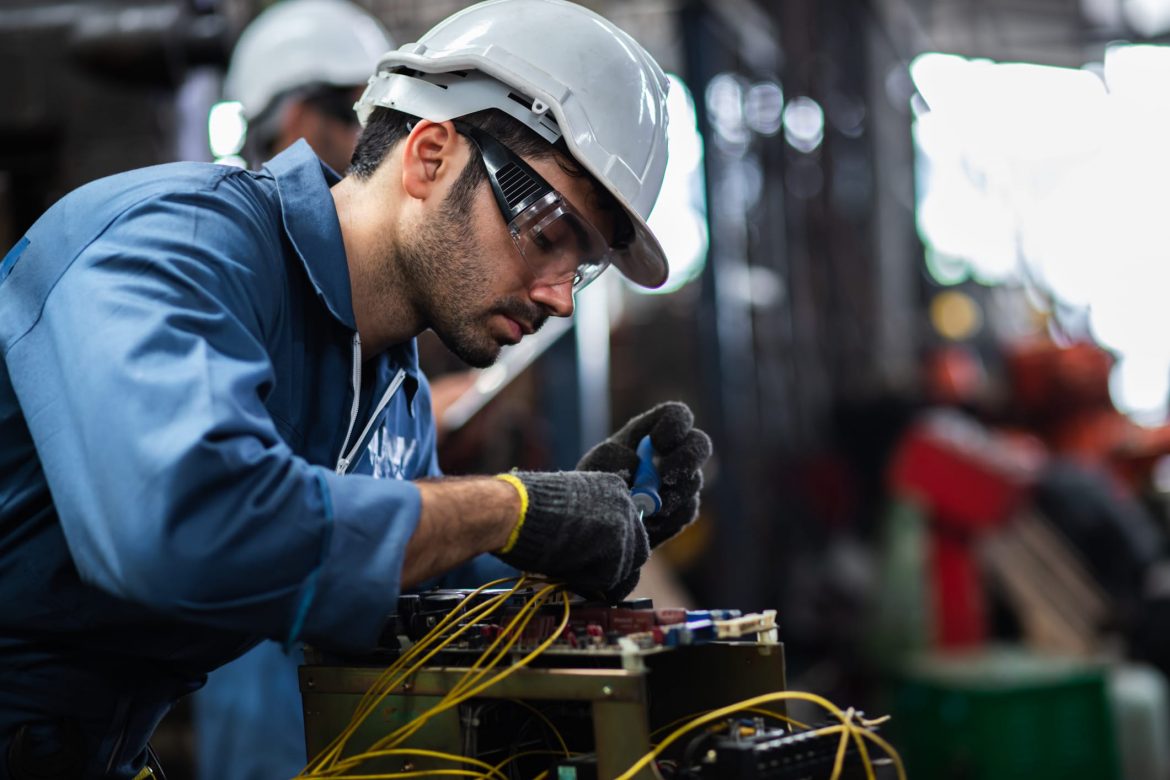In the vast field of technical professions, the term electrician mechanic might seem a bit ambiguous to the uninitiated. However, it represents a critical role in the modern industrial landscape, combining the skills of an electrician and a mechanic. This article aims to delve into the specifics of what an electrician mechanic is, their roles, responsibilities, and the qualifications required to become one.
An electrician mechanic, also known as an electro-mechanic, is a professional who possesses a unique blend of electrical and mechanical skills. They are responsible for installing, maintaining, and repairing both electrical and mechanical components of industrial machinery and equipment. Their expertise lies in understanding the intricate relationship between electrical circuits and moving mechanical parts.
The role of an electrician mechanic is multifaceted. They are expected to read and interpret electrical and mechanical blueprints, schematics, and diagrams. They troubleshoot electrical and mechanical faults in machinery and equipment, perform regular preventive maintenance, and ensure compliance with safety regulations. Furthermore, they are often involved in the testing and inspection of electrical systems such as switchboards, circuits, electrical components, and motors.
To become an electrician mechanic, one must typically complete a vocational training program in electrical or mechanical technology. This is often followed by an apprenticeship where they gain hands-on experience under the supervision of a seasoned professional. Some positions may require a specific certification, such as the Electro-Mechanical Technician Certification (EMT), or a state-specific electrician license.
The demand for electrician mechanics is on the rise due to the increasing complexity of industrial machinery and equipment. According to the U.S. Bureau of Labor Statistics, the employment of electro-mechanical technicians is projected to grow 3 percent from 2019 to 2029. This growth is driven by the need for these technicians in a variety of manufacturing industries, including automotive, aerospace, energy, and more.
In the era of Industry 4.0, where automation and data exchange are becoming more prevalent in manufacturing technologies, the role of an electrician mechanic is evolving. They are now expected to have a working knowledge of programmable logic controllers (PLCs) and other computerized diagnostic tools. Moreover, as sustainability becomes a key concern in industrial operations, electrician mechanics are also tasked with optimizing machinery and equipment to improve energy efficiency.
In conclusion, an electrician mechanic is a vital cog in the industrial machinery, bridging the gap between electrical and mechanical systems. Their unique skill set enables them to maintain and improve the efficiency of complex machinery, contributing to the overall productivity and sustainability of industrial operations. As technology continues to advance, the role of the electrician mechanic is set to become even more significant, making it a promising career path for those interested in the intersection of electrical and mechanical technologies.

